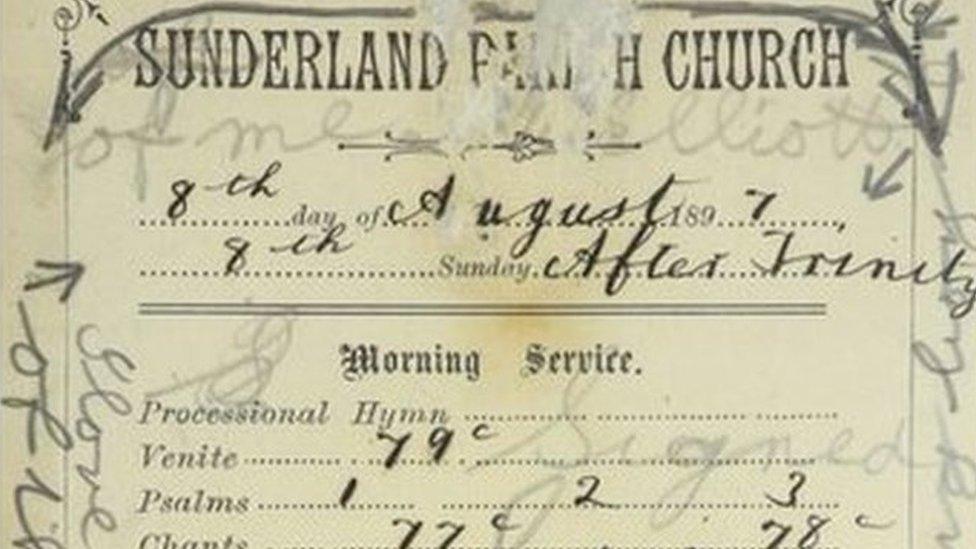Sunderland orphanage choirboy mystery solved after church note
- Published
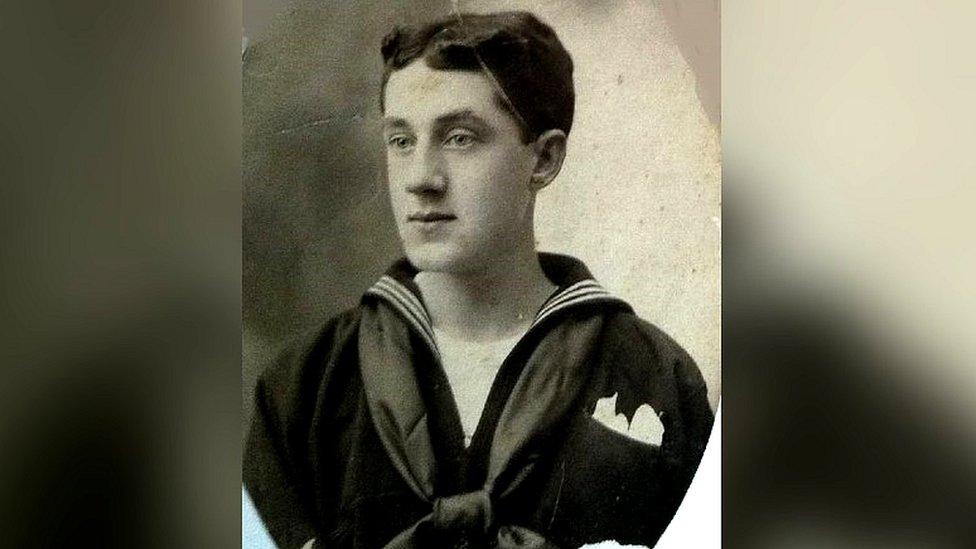
William Elliot joined the US Navy shortly after arriving in the country in 1903
An orphanage choirboy who hid a letter in a church pew asking not to be forgotten went on to become a US naval hero, it has been revealed.
Researchers found William Elliott moved to the US when he was 19 years old and joined the US Navy, and was later buried a hero at Arlington Cemetery.
The mystery was sparked by the note found at Sunderland's old Holy Trinity Church 125 years after it was written.
In it he had asked whoever found it to "keep it in remembrance of me".
William had been put in the orphanage as an eight-year-old after his father, a chief officer in the forerunner to the Merchant Navy, drowned in a storm in 1897.
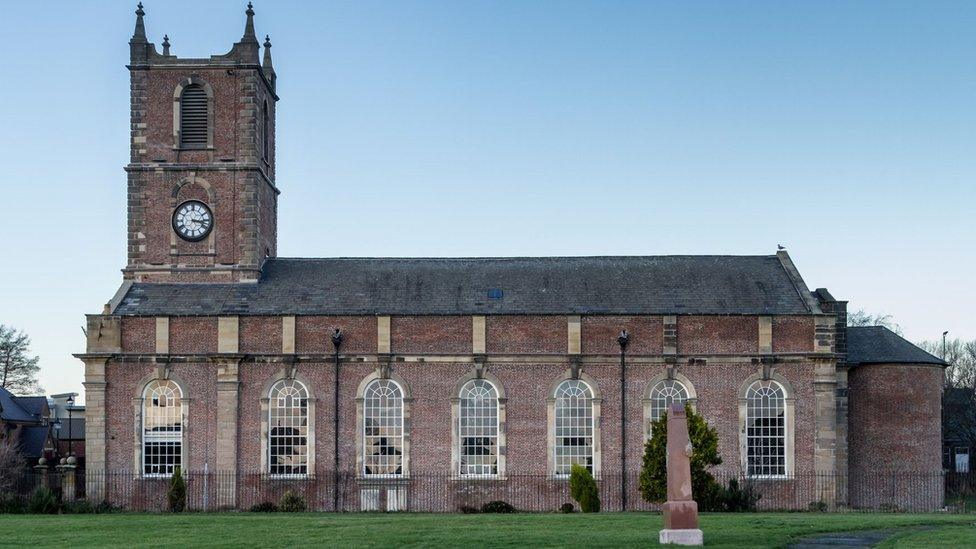
The former Holy Trinity church where the note was found is now a performance and event space
He stayed in Sunderland Orphanage Asylum for the next six years, and during that time wrote the note, which he left in the church.
His letter said: "Dear friend, whoever finds this paper think of William Elliott, who had two months, two weeks and four days on 11 of August 1897.
"Whoever you are that finds this paper, don't tear it up or throw it away, keep it in remembrance of me, W. Elliott. I was the leading boy of this choir. I love you if you love me."
Research by Seventeen Nineteen, part of the Churches Conservation Trust which runs the former church as an event space, discovered William went to have a remarkable life serving in the US Navy in both world wars.
They found out that by 1901 William, who had been well-educated at the orphanage, was working as a solicitor's clerk, and two years later he followed his sister in emigrating to New York when he was just 19, where he enlisted in the US Navy.
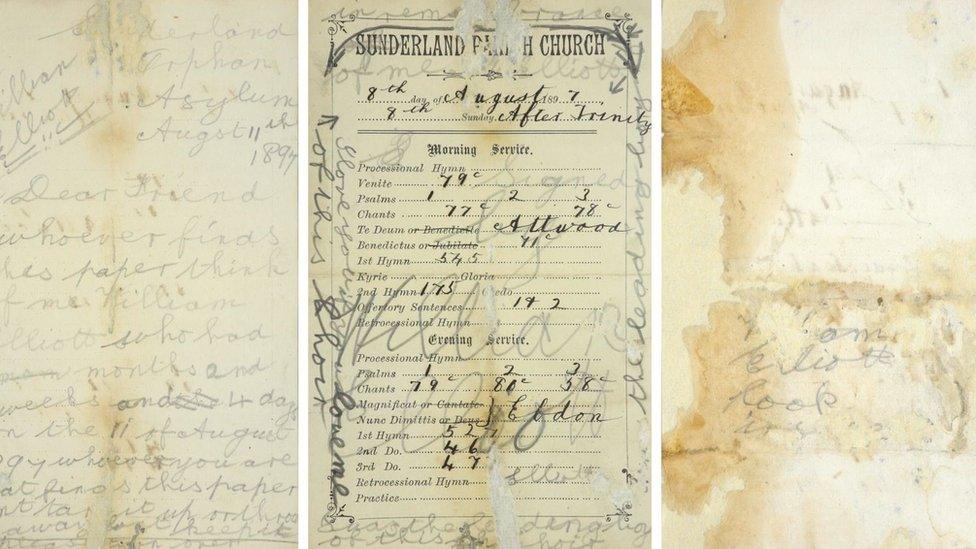
The note has inspired the "Dear Friend" project, inviting people to reply to William
He started a 42-year career, serving in World War One and later on a variety of navy vessels before retiring in 1939.
He went on to re-enlist when the US joined World War Two and worked as a supply officer, reaching the rank of commander before retiring again after the war.
He had two children and was married three times - with his first two wives dying before him.
He died aged 84 in a San Diego rest home in 1968 and was buried at Arlington National Cemetery in Washington DC - the final resting place for more than 14,000 US military veterans.
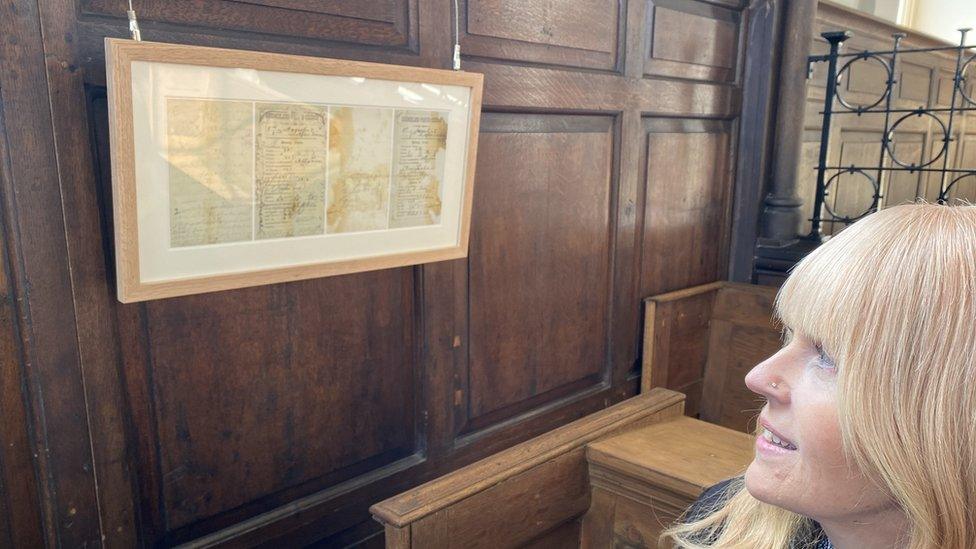
The note now hangs in the former church next to the pew where William Elliott wrote it
"Ever since we found William's letter, we have wondered what became of him," said Tracey Mienie, centre manager at Seventeen Nineteen.
"And now, thanks to the work of people who were as touched by his story as we were, we know he went on to lead a full, rich life, serving his country and much loved by his family."
A copy of William's letter remains at the former Wearside church next to the pew where he wrote it.
"He asked those reading it to make sure he wasn't forgotten," said Tracey, "and now he never will be."
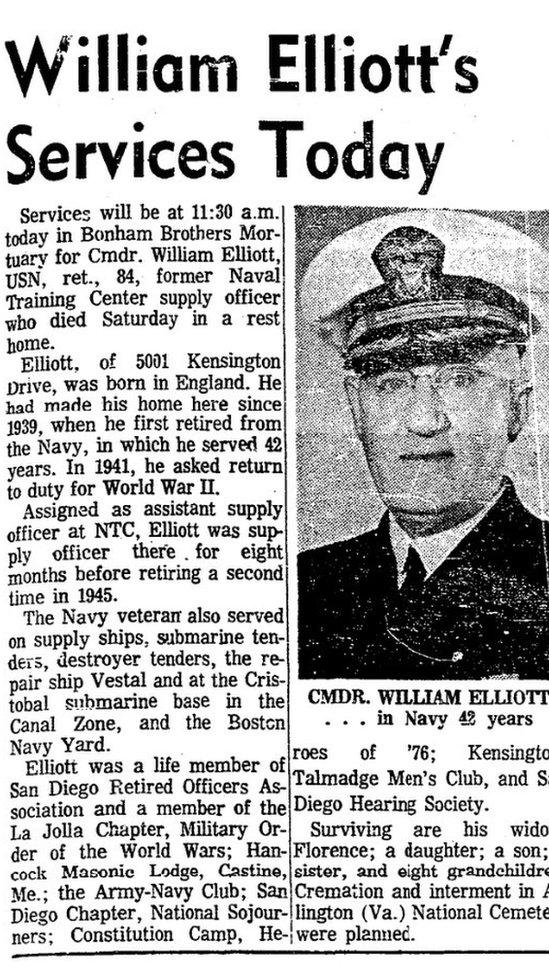
Researchers unearthed William's newspaper obituary following his death in San Diego

Follow BBC North East & Cumbria on Twitter, external, Facebook, external and Instagram, external. Send your story ideas to northeastandcumbria@bbc.co.uk, external.
Related topics
- Published29 March 2022
